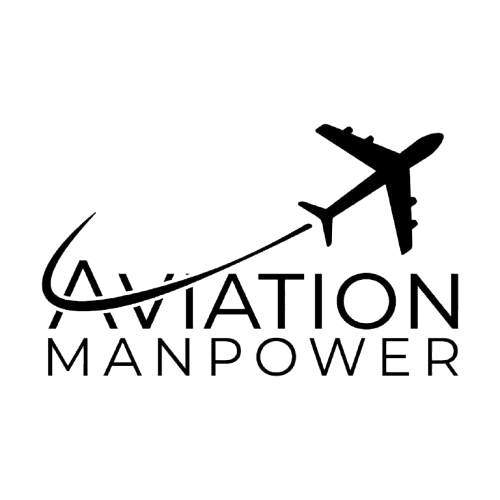Introduction
The life of a commercial pilot is often romanticized in movies and media—soaring above the clouds, traveling to exotic destinations, and living a life of adventure. While this career certainly has its glamorous moments, it’s also a profession that demands discipline, resilience, and a deep commitment to safety.
For those who dream of taking to the skies, becoming a commercial pilot can be incredibly rewarding, but it’s not without its challenges.
In this blog, we’ll take an in-depth look at what it’s like to be a commercial pilot. We’ll explore the pros and cons of the job, break down a typical day in the life of a pilot, and discuss how aviation recruiters and job recruitment agencies can help aspiring aviators land their dream roles.
Whether you’re considering a career in aviation or simply curious about the realities of the profession, this guide will provide you with a comprehensive understanding of what it takes to succeed in this high-flying career.
The Pros of Being a Commercial Pilot
- Travel the World
One of the most appealing aspects of being a commercial pilot is the opportunity to travel. Pilots often fly to different cities, countries, and continents, experiencing diverse cultures and landscapes. For those with a passion for exploration, this career offers a unique way to see the world. Whether it’s a layover in Paris, a quick stop in Tokyo, or a weekend in New York, pilots get to experience destinations that many people only dream of visiting. - Competitive Salary and Benefits
Commercial pilots are well-compensated for their skills and responsibilities. According to industry reports, the average salary for a commercial pilot ranges from 80,000 to 150,000 annually, depending on experience, airline, and type of aircraft. Along with a competitive salary, many airlines offer benefits such as health insurance, retirement plans, and travel perks for pilots and their families. - Job Stability and Growth
The aviation industry is growing, and the demand for skilled pilots is on the rise. According to Boeing’s Pilot and Technician Outlook, the industry will need over 600,000 new pilots globally over the next two decades. This demand makes aviation a stable and promising career choice, with ample opportunities for advancement. - Prestige and Respect
Being a pilot is often seen as a prestigious profession. The role requires extensive training, skill, and responsibility, earning pilots’ respect from colleagues and passengers alike. For many, the pride of wearing the uniform and commanding a sophisticated aircraft is a significant motivator. - Variety in Daily Tasks
No two days are the same for a commercial pilot. From navigating different weather conditions to interacting with diverse crews and passengers, the job offers variety and excitement. Pilots must constantly adapt to new challenges, making the work dynamic and engaging.
The Cons of Being a Commercial Pilot
- Rigorous Training and Certification
Becoming a pilot requires significant time, effort, and financial investment. Aspiring pilots must complete extensive training, accumulate flight hours, and obtain various certifications. The process can take several years and cost tens of thousands of dollars, which can be a barrier for some. - Irregular Schedule and Time Away from Home
Pilots often work irregular hours, including nights, weekends, and holidays. Long-haul flights can mean spending days away from home, which can be challenging for those with families. The unpredictable schedule can make it difficult to maintain a work-life balance. - High Levels of Responsibility
The safety of hundreds of passengers rests on the pilot’s shoulders. This level of responsibility can be stressful and demanding, requiring constant focus and attention to detail. Pilots must be prepared to handle emergencies and make split-second decisions when necessary. - Health and Lifestyle Challenges
Pilots must maintain strict medical standards to retain their licenses. Additionally, the job can be physically taxing, with long hours spent sitting and exposure to changes in air pressure. The irregular schedule can also disrupt sleep patterns, leading to fatigue. - Initial Financial Investment
The cost of flight training can be substantial, often running into tens of thousands of dollars. While the long-term earning potential is high, the initial investment can be a barrier for some. Many aspiring pilots take out loans or seek scholarships to fund their training.
A Day in the Life of a Commercial Pilot
A commercial pilot’s daily routine varies depending on the type of flights they operate (short-haul vs. long-haul) and their airline’s schedule. Here’s a glimpse into a typical day:
- Pre-Flight Preparation
The day begins with a thorough review of the flight plan, weather conditions, and aircraft status. Pilots also attend a pre-flight briefing with the crew to discuss safety protocols and passenger details. - Pre-Flight Checks
Before boarding, pilots conduct a series of checks to ensure the aircraft is in optimal condition. This includes inspecting the exterior, testing systems, and reviewing fuel levels. - Boarding and Takeoff
Once passengers are onboard, the pilot communicates with air traffic control, taxis the plane to the runway, and takes off. This phase requires precision and coordination with the co-pilot and crew. - In-Flight Duties
During the flight, pilots monitor systems, navigate, and communicate with air traffic control. They also manage any unexpected situations, such as turbulence or technical issues. - Landing and Post-Flight Procedures
After landing, pilots complete post-flight checks, debrief with the crew, and prepare for the next flight or head to their layover destination. - Layovers and Downtime
For long-haul pilots, layovers can range from a few hours to several days. This time is often spent resting, exploring the destination, or catching up on personal tasks.
How Aviation Recruiters Can Help You Land Your Dream Job
Breaking into the aviation industry can be competitive, but aviation recruiters and job recruitment agencies can provide invaluable support. Here’s how:
- Access to Exclusive Opportunities
Aviation recruitment agencies often have partnerships with airlines and access to job openings that aren’t publicly advertised. - Guidance and Mentorship
Recruiters can offer advice on training, certifications, and career paths, helping you make informed decisions. - Resume and Interview Preparation
A well-crafted resume and strong interview skills are crucial. Recruitment agencies can help you highlight your strengths and stand out to potential employers. - Networking Opportunities
Recruiters often have extensive networks within the industry, connecting you with key decision-makers and increasing your chances of landing a job. - Streamlined Application Process
Applying for pilot positions can be time-consuming. Recruitment agencies simplify the process by matching you with suitable roles and handling paperwork.
When choosing an aviation recruitment agency, look for reputable firms with a track record of success. Some of the best aviation recruitment agencies include Aviation Manpower, known for their expertise and industry connections.
Conclusion
Life as a commercial pilot is a unique blend of adventure, responsibility, and challenge. While the profession offers incredible rewards, it also demands dedication, resilience, and a passion for aviation. By understanding the pros, cons, and daily routine, you can make an informed decision about whether this career is right for you.
If you’re ready to take the next step, consider partnering with aviation recruiters or job recruitment agencies to navigate the competitive landscape and secure your dream job in the skies. The journey to becoming a commercial pilot may be demanding, but for those who love flying, the rewards are truly unparalleled.
FAQs
1. How long does it take to become a commercial pilot?
Becoming a commercial pilot typically takes 2-4 years, depending on the training program and the individual’s pace. This includes obtaining a Private Pilot License (PPL), Instrument Rating (IR), Commercial Pilot License (CPL), and accumulating the required flight hours (usually 250+). Additional certifications, such as the Airline Transport Pilot License (ATPL), may be required for certain roles.
2. What qualifications do I need to become a commercial pilot?
To become a commercial pilot, you’ll need:
- A high school diploma or equivalent (a degree in aviation or a related field can be beneficial).
- A Private Pilot License (PPL) and a Commercial Pilot License (CPL).
- An Instrument Rating (IR) and Multi-Engine Rating (MER).
- A Class 1 Medical Certificate to ensure you meet the health requirements.
- Completion of flight training from a certified flight school.
3. How much does it cost to become a commercial pilot?
The cost of becoming a commercial pilot can range from
50,000 to 100,000 or more, depending on the flight school, location, and type of training. This includes fees for flight hours, ground school, exams, and certifications. Many aspiring pilots seek scholarships, loans, or sponsorships to cover these costs.
4. What is the job outlook for commercial pilots?
The job outlook for commercial pilots is very positive. According to industry reports, there is a global shortage of pilots, driven by increasing air travel demand and retirements. Over the next two decades, the aviation industry will need hundreds of thousands of new pilots, making this a stable and high-demand career.
5. How can aviation recruiters help me start my career as a pilot?
Aviation recruiters and job recruitment agencies specialize in connecting aspiring pilots with airlines and aviation companies. They can:
- Provide access to exclusive job openings.
- Offer guidance on training and certifications.
- Help with resume building and interview preparation.
- Connect you with industry professionals and networking opportunities.
- Working with reputable aviation recruitment agencies can significantly streamline your job search and increase your chances of landing a role.

